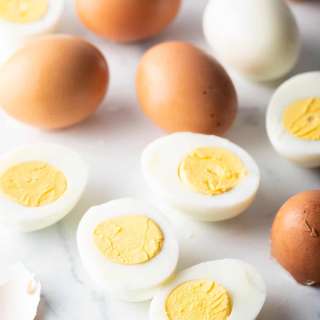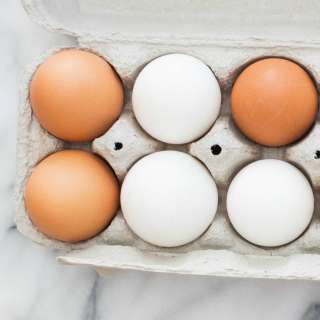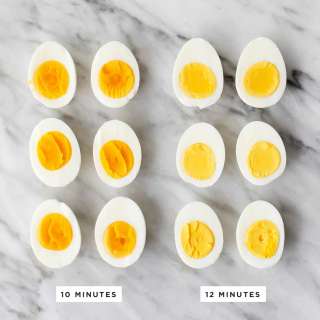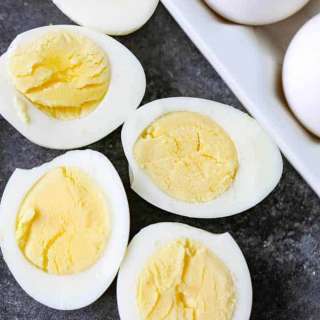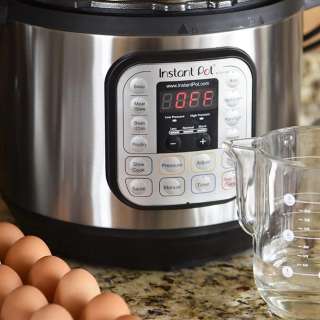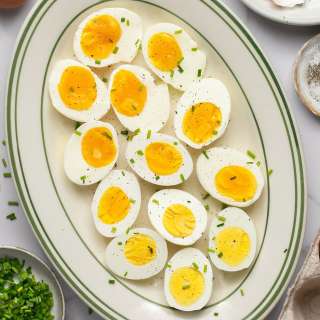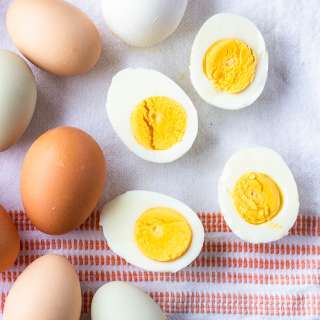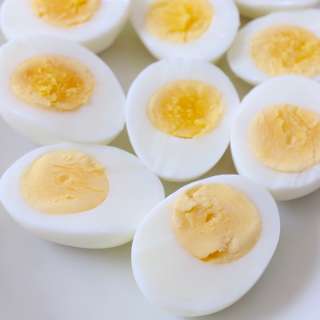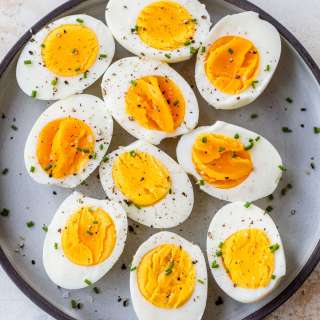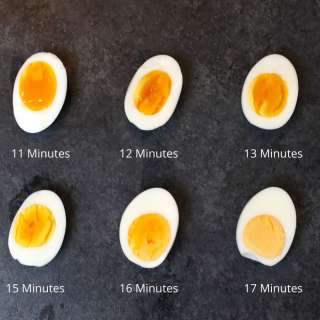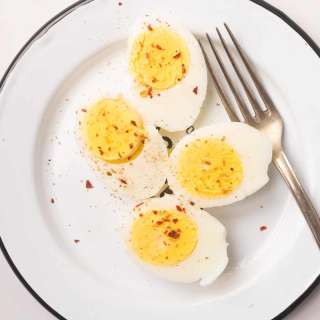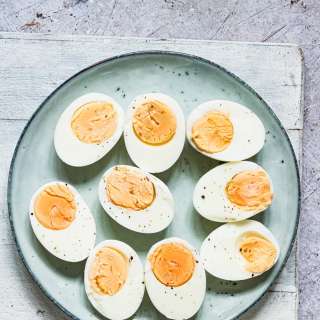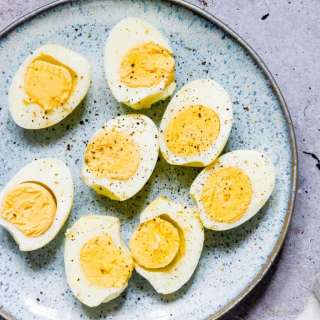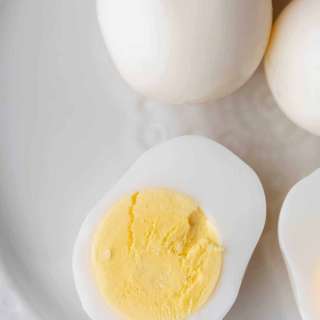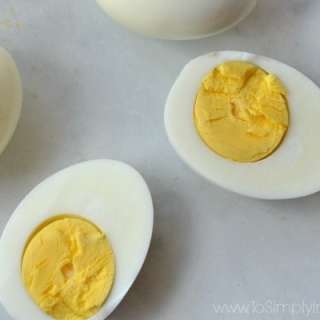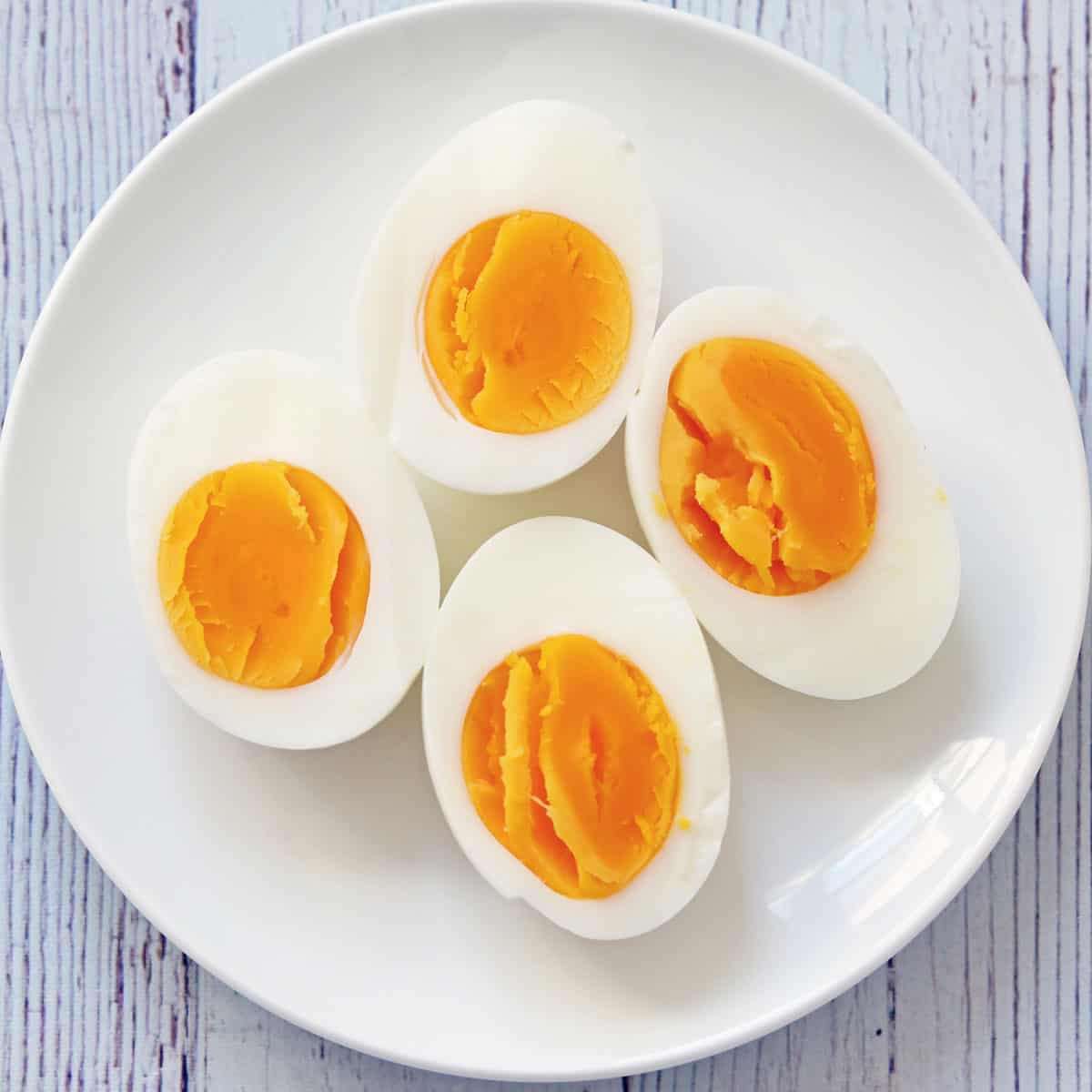
Easy Peel Hard-Boiled Eggs
User Reviews
5.0
3 reviews
Excellent

Easy Peel Hard-Boiled Eggs
Report
The secret to perfect, easy-peel hard-boiled eggs is using old eggs. The closer they are to their expiration date, the easier it will be to peel them.
Share:
Ingredients
- 12 large eggs not fresh
- salt and pepper to taste
Instructions
- Remove the eggs from the fridge 30 minutes before boiling the water.
- Bring a medium pot of water to a boil. Using a slotted spoon, carefully lower the eggs into the boiling water one by one. A perforated serving spoon makes this task easier.
- Bring the water back to a boil and allow the eggs to boil for 1 minute.
- Turn the heat off, remove the pot from the heat, cover the pot, and set your timer for 10 to 12 minutes. 10 minutes for yolks that are still slightly soft in the center, 11 minutes for fully cooked yolks, and 12 minutes for well-cooked, dry yolks (best for deviled eggs).
- Drain the hot water from the pot and fill it with running cold water. Allow the cold water to run over the eggs for 2 minutes.
- Gently crack the eggs and peel them under cold running water. Season, if you wish, with salt and pepper.
Notes
- Use old eggs. Not so old that they're past their "use by" date. But the closer they are to that date, the easier it will be to peel them. So I use the freshest eggs when frying and poaching, saving the older ones for boiling.
- Boil your water first, then lower the eggs into the water. This helps loosen the thin membrane that tends to stick to the eggs, making them impossible to peel.
- Cool the eggs immediately after they are done cooking. Do this by pouring out the hot water and filling the pot with cold water.
- Use eggs with a thick shell. If the eggs you use have very thin and fragile shells, they could crack when you put them in hot water. This method works best with thick-shelled eggs. Even with a thick shell, the first egg you lower into the hot water might slightly crack. But this method is so effective, I think it's worth it.
- Removing the eggs from the fridge 30 minutes before you start cooking is another way to prevent cracking.
- The nutrition info does not include salt and pepper.
- Use old eggs. Not so old that they're past their "use by" date. But the closer they are to that date, the easier it will be to peel them. So I use the freshest eggs when frying and poaching, saving the older ones for boiling.
- Boil your water first, then lower the eggs into the water. This helps loosen the thin membrane that tends to stick to the eggs, making them impossible to peel.
- Cool the eggs immediately after they are done cooking. Do this by pouring out the hot water and filling the pot with cold water.
- Use eggs with a thick shell. If the eggs you use have very thin and fragile shells, they could crack when you put them in hot water. This method works best with thick-shelled eggs. Even with a thick shell, the first egg you lower into the hot water might slightly crack. But this method is so effective, I think it's worth it.
- Removing the eggs from the fridge 30 minutes before you start cooking is another way to prevent cracking.
- The nutrition info does not include salt and pepper.
Nutrition Information
Show Details
Serving
1egg
Calories
78kcal
(4%)
Protein
6g
(12%)
Fat
5g
(8%)
Sodium
62mg
(3%)
Nutrition Facts
Serving: 12eggs
Amount Per Serving
Calories 78 kcal
% Daily Value*
| Serving | 1egg | |
| Calories | 78kcal | 4% |
| Protein | 6g | 12% |
| Fat | 5g | 8% |
| Sodium | 62mg | 3% |
* Percent Daily Values are based on a 2,000 calorie diet.
Genuine Reviews
User Reviews
Overall Rating
5.0
3 reviews
Excellent
Other Recipes
